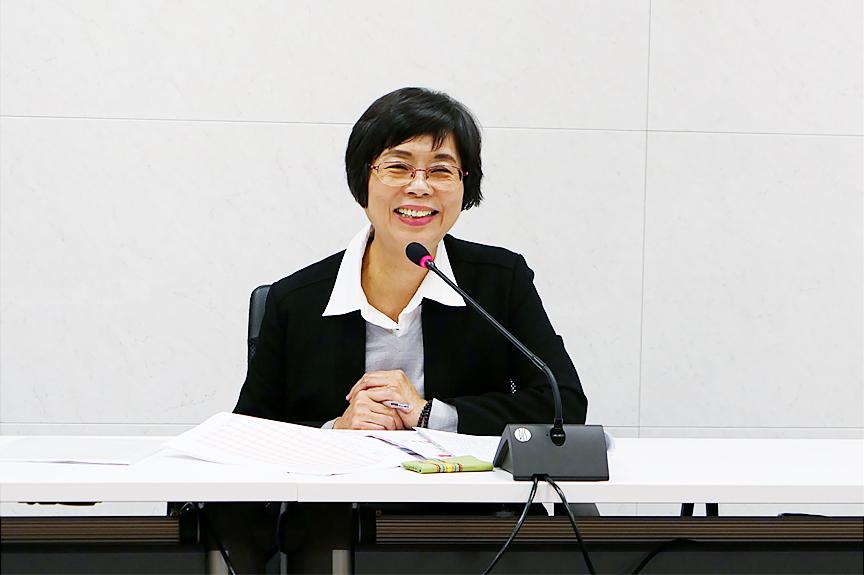A recovery in business activity, and vibrant securities and property transactions have led to a 10.3 percent year-on-year increase in tax revenue, the Ministry of Finance said yesterday, adding that revenue totaled NT$231.7 billion (US$8.13 billion) last month.
Business tax revenue rose 9.1 percent year-on-year to NT$86 billion, aided by a pickup in manufacturing and retail sales, Department of Statistics Deputy Director-General Chen Yu-feng (陳玉豐) said, adding that an increase in imports of electrical and machinery equipment also lent support.
Corporate income tax revenue rose 6 percent to NT$4.2 billion, while personal income tax bounced 16.3 percent to NT$20 billion, as Taiwan increasingly cast off the negative effects of the COVID-19 pandemic, the ministry said.

Photo: CNA
Securities transaction tax revenue surged 55.5 percent to NT$13.8 billion, after daily turnover swelled by 77.3 percent on the Taiwan Stock Exchange and 62.5 percent on the Taipei Exchange, the ministry’s monthly report showed.
The local markets have seen rapid inflows of funds from home and abroad as global central banks cut interest rates to nearly zero or below zero, driving investors to pursue better returns elsewhere
Taiwan emerges as an attractive destination owing to its resilient economy and competitive technology firms.
Land value increment tax revenue rose 27 percent to NT$11.1 billion, the highest since the introduction of combined property taxes in 2016, following a 21.7 percent uptick in taxable cases to 57,567, Chen said.
Property transactions last month showed evident gains in Taipei, New Taipei City, Taoyuan, Hsinchu, Tainan and Kaohsiung, Chen said.
Increased transactions have pushed up home prices nationwide, prompting the central bank to tighten credit controls by on Monday capping the loan-to-value ratios at 50 to 60 percent.
Previously, it was common for local banks to grant lending at 80 percent of property values.
For the first 11 months, the ministry collected NT$2.24 trillion in tax revenue, representing a 3.8 percent decline from the same period last year, slightly behind its budget target.
Chen said that the full-year volume might disappoint, due to profitability retreats among local firms, and a tax cut from 10 percent to 5 percent on retained earnings.

SEMICONDUCTORS: The German laser and plasma generator company will expand its local services as its specialized offerings support Taiwan’s semiconductor industries Trumpf SE + Co KG, a global leader in supplying laser technology and plasma generators used in chip production, is expanding its investments in Taiwan in an effort to deeply integrate into the global semiconductor supply chain in the pursuit of growth. The company, headquartered in Ditzingen, Germany, has invested significantly in a newly inaugurated regional technical center for plasma generators in Taoyuan, its latest expansion in Taiwan after being engaged in various industries for more than 25 years. The center, the first of its kind Trumpf built outside Germany, aims to serve customers from Taiwan, Japan, Southeast Asia and South Korea,

Gasoline and diesel prices at domestic fuel stations are to fall NT$0.2 per liter this week, down for a second consecutive week, CPC Corp, Taiwan (台灣中油) and Formosa Petrochemical Corp (台塑石化) announced yesterday. Effective today, gasoline prices at CPC and Formosa stations are to drop to NT$26.4, NT$27.9 and NT$29.9 per liter for 92, 95 and 98-octane unleaded gasoline respectively, the companies said in separate statements. The price of premium diesel is to fall to NT$24.8 per liter at CPC stations and NT$24.6 at Formosa pumps, they said. The price adjustments came even as international crude oil prices rose last week, as traders

Taiwan Semiconductor Manufacturing Co (TSMC, 台積電), which supplies advanced chips to Nvidia Corp and Apple Inc, yesterday reported NT$1.046 trillion (US$33.1 billion) in revenue for last quarter, driven by constantly strong demand for artificial intelligence (AI) chips, falling in the upper end of its forecast. Based on TSMC’s financial guidance, revenue would expand about 22 percent sequentially to the range from US$32.2 billion to US$33.4 billion during the final quarter of 2024, it told investors in October last year. Last year in total, revenue jumped 31.61 percent to NT$3.81 trillion, compared with NT$2.89 trillion generated in the year before, according to

PRECEDENTED TIMES: In news that surely does not shock, AI and tech exports drove a banner for exports last year as Taiwan’s economic growth experienced a flood tide Taiwan’s exports delivered a blockbuster finish to last year with last month’s shipments rising at the second-highest pace on record as demand for artificial intelligence (AI) hardware and advanced computing remained strong, the Ministry of Finance said yesterday. Exports surged 43.4 percent from a year earlier to US$62.48 billion last month, extending growth to 26 consecutive months. Imports climbed 14.9 percent to US$43.04 billion, the second-highest monthly level historically, resulting in a trade surplus of US$19.43 billion — more than double that of the year before. Department of Statistics Director-General Beatrice Tsai (蔡美娜) described the performance as “surprisingly outstanding,” forecasting export growth